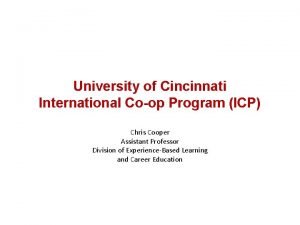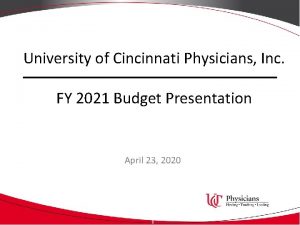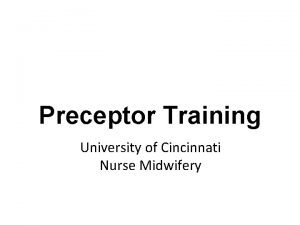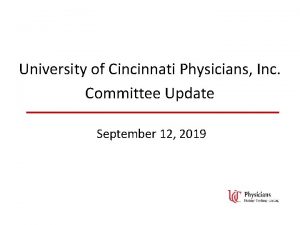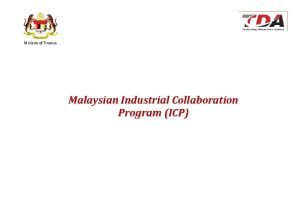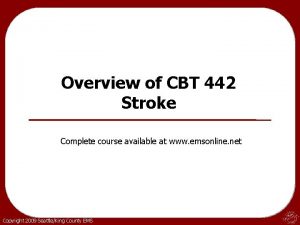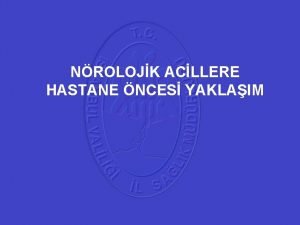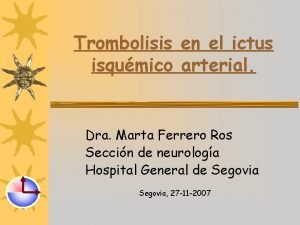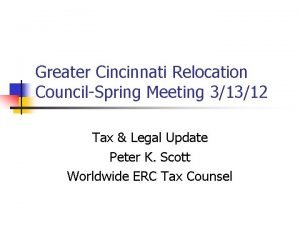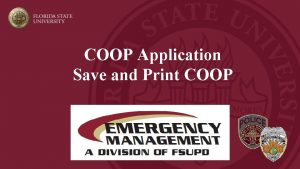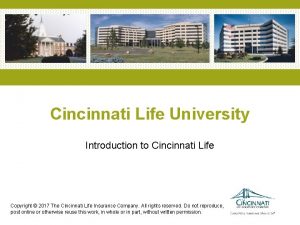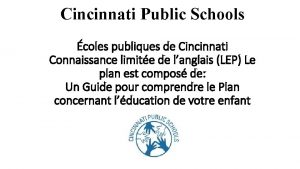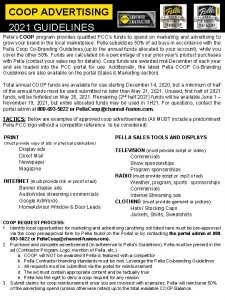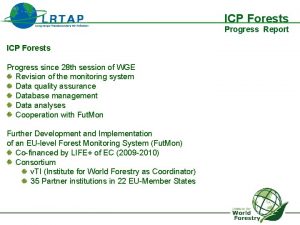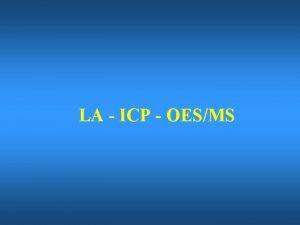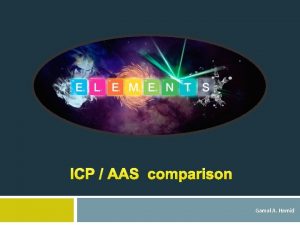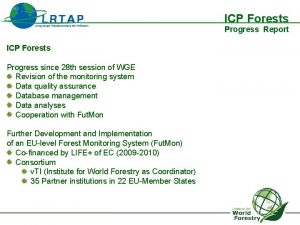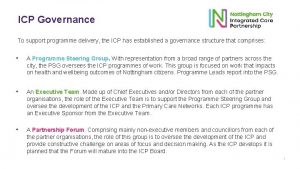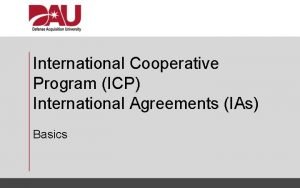University of Cincinnati International Coop Program ICP Chris




















- Slides: 20

University of Cincinnati International Co-op Program (ICP) Chris Cooper Assistant Professor Division of Experience-Based Learning and Career Education

History • Herman Schneider (College of Engineering Dean) invented co-op in 1906. • First class -- 28 Engineering students. • UC now has 5, 500 co-op placements annually and 1500 employers. • International option created in 1991. • German, Japanese or Spanish language/ culture preparation. • Eight-month co-op work experience abroad.

Division of Experience-Based Learning and Career Education • Centralized academic unit manages the Co-op Program • 55 faculty and staff • 40+ majors • Four co-op colleges: 1) Engineering and Applied Science, 2) Design, Architecture, Art and Planning, 3) Education, 4) Arts & Sciences • Co-ops across the USA and 20 countries

Co-op Program Structure • Transfer learning between classroom and the workplace • Five years to graduate with 20 months co-op experience • Year-round participation • Co-op + rigid engineering structure = minimal flexibility • Needed to consider structure when creating international option

ICP Course Structure /Requirements • Orientation to International Co-op • Choice of one ICP elective • Language/culture course series • Six-week summer intensive • Three credit hours fall semester • Two week intensive in-country course • Mandatory weekly blog postings overseas • Reflection meeting on return • Promotion of experience to others

UC Structure of ICP Intro to Co-op Orientation to International Co-op Class Intensive Language International Co-op ICP Schedule 1 F 2 3 4/5 SP US F Freshmen Sophomore Pre-Junior S Senior

Students Go Abroad With • Over 250 hours of language/culture instruction • One year of discipline-related work experience • Understanding of new culture • Ability to appreciate cultural differences • Results in success living and working abroad

Other International Initiatives • Experience Internship Programs • Two-week study tour to Japan, Europe and Ireland • UC-CQU Joint Co-op Institute • Focus on international program development

Creating Realistic Expectations for Students

Reduce Barriers to Participation • • • Transparent application process Frequent information sessions Early touch points for long-term programs Assignments and student deliverables Payment schedule and dropout date

Outline Total Program Cost • Program Costs vs. Hidden Costs • Airfare • Meals • Tuition • Housing • Available grant funding and scholarships • Variation of program cost

Address Behavior Expectations • Pre-departure meetings & syllabus • Country specific laws • University Code of Ethics • Late contingency plan • Required attendance • Free time • Follow the leader, as a general best practice

Use Language and Cultural Prep to Set Expectations • • Second language vs. English Work responsibilities and challenges Dealing with culture shock and homesickness Meeting people and getting involved

Highlight Differences Between Domestic and International Positions • Student/position fit • Salary expectations • Housing and transport

Short-Term International Programs

Why Create a Short-Term Program? • • Cultural introduction Conversion to longer-term program International context for an engineering topic Aligns with course learning outcomes

Location, Location • • Expertise or existing partnerships Student demand Safety and current events Funding availability Nicholas Raymond

Self-Organized vs. Third Party Self-Organized • • Typically less expensive Complete control over itinerary Teaching and logistics Support varies by institution Third Party • • Typically more expensive Flexible control over itinerary More teaching, less logistics On-the-ground support

Discovery • • Partnership development Site visits Transportation evaluation Other course pre-work

Advertisement and Marketing • Targeted major/course or broad audience • Student organizations • Student ambassadors • International office • Include popular destinations Edward Kim
 University of cincinnati co op program
University of cincinnati co op program University of cincinnati physicians inc
University of cincinnati physicians inc University of cincinnati nurse midwifery
University of cincinnati nurse midwifery Cincinnati chemical engineering
Cincinnati chemical engineering University of cincinnati chemical engineering
University of cincinnati chemical engineering University of cincinnati physicians inc
University of cincinnati physicians inc Soma sengupta university of cincinnati
Soma sengupta university of cincinnati Industrial collaboration programme malaysia
Industrial collaboration programme malaysia Cincinnati stroke scale
Cincinnati stroke scale Befast stroke scale
Befast stroke scale Meetup.com cincinnati
Meetup.com cincinnati Southwestern college cincinnati ohio
Southwestern college cincinnati ohio Vessek
Vessek Cincinnati skalası nedir
Cincinnati skalası nedir Rankin escala
Rankin escala Cstars cincinnati
Cstars cincinnati Greater cincinnati relocation services
Greater cincinnati relocation services Cincinnati bengals
Cincinnati bengals Cincy west soccer
Cincy west soccer Cincinnati state associate degrees
Cincinnati state associate degrees Shooting list template
Shooting list template
